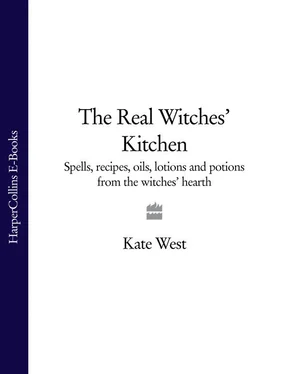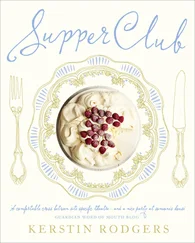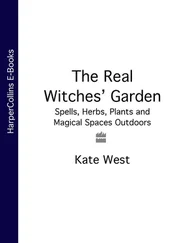So what do Witches believe in and how do they express these beliefs? First, you have to understand that, unlike the more ‘orthodox’ religions, the Craft has no paid or formal priesthood; we are each our own Priest or Priestess and therefore make our own decisions as to the expression of our beliefs. As a result there is no ‘one true way’ to being a Witch. This gives rise to a great diversity in our daily practices and indeed enables the Craft to grow and adapt to the real world in a way that other paths find difficult because of their interpreted doctrine. Having said that, there are many beliefs and practices that most Witches hold in common:
 We believe that the Divine is both male and female.
We believe that the Divine is both male and female.
We believe this is equal and in balance, and that we should seek that balance in ourselves and in our lives. Put simply, this means that we believe in the Goddess and the God, and they may be referred to by many names according to the needs of the individual or indeed their personal preference. It helps to think of the Divine as being like a mirror ball, with each facet having a different identity, although all are part of the Divine. As a result you may find that the Goddess is referred to as Isis, Astarte or Hecate, for example, and the God referred to as Osiris, Herne or Pan, and so on. Some Witches will simply refer to the Lord and Lady or the Goddess and the God, and these are the terms that I will use in this book. Others will call them the Old Ones or the Old Gods, or even just the Gods.
The Goddess is seen as having three aspects: Maiden, Mother and Crone (or Wise One). These aspects are reflected in the cycle of the Moon, and in our daily lives, for everything has its beginning, middle and closing phases.
The God also has different aspects, but these are more clearly defined through the festivals of the seasons and the Wheel of the Year.
 We are each our own Priest or Priestess.
We are each our own Priest or Priestess.
As mentioned above we have no formal priesthood in the Craft although those Witches working in a group or Coven setting will have a High Priestess and High Priest who are the leaders of that group. This does not make them better Witches, it simply denotes their standing and authority within that group. Having no formal priesthood means we do not rely on others to interpret or intercede with our Gods for us, we are each entitled to make our own connection with the Divine in our own way. This might be through ritual, meditation and/or Magic and most Witches will use a combination of different techniques at different times.
We have no ‘book of instruction’.
We do not have a book in the way that Christians have the Bible or Muslims the Koran. There are a great number of books on the Craft, however, and it is up to those who wish to read some of these to make personal decisions as to their relevance. Each individual can choose the complexity of their rituals, and the form that their path will take. For some this may mean working in a group or Coven, others may prefer a Solitary path. Some will seek to work formalized Magic whilst others prefer the Hedgewitch approach, working closely with nature and using herbs to achieve their Magic.
 Everyone is entitled to their own, informed, choice of spiritual path, so long as they harm no one.
Everyone is entitled to their own, informed, choice of spiritual path, so long as they harm no one.
Witchcraft is a non-proselytizing belief system – we do not feel the need for everyone to believe as we do in order to feel secure in our faith. There is plenty of room in this world for everyone to find their own way of relating to the Divine. In fact all religions have as much, if not more, in common than in difference. Hence there is no reason why we should not encourage and celebrate a diversity of beliefs. We encourage our young to examine many paths and to make their own decisions, based on their own needs. We do not seek to convert others to our beliefs, nor do we wish to be indoctrinated in turn.
 We believe that we should respect nature.
We believe that we should respect nature.
This means not taking more than we need and, indeed, trying to make recompense for that which we have taken. It involves trying to live not only in the modern world but also in balance with the planet. Witches tend to shop second-hand, make at least some of the things they use and to recycle where they can. This does not mean that we are all ‘green warriors’ campaigning against the building of roads or houses. It does mean that we try to tread lightly on the world.
 Witches utilize the elements in their workings.
Witches utilize the elements in their workings.
It is not just that we respect nature, we also see ourselves reflected by the elements of Air, Fire, Water, Earth and Spirit. Whilst these elements are all around us in nature they are also within us: Air is our thoughts, Fire our passions and enthusiasm, Water our emotions, Earth our bodies and Spirit our inner selves. These are the energies we harness in working Magic and in order for this to be effective we must be able to achieve balance between them. These elements also have their reflections in daily life. For every project to work it must have its phases of thought, enthusiasm, emotional involvement and formation, and must also be imbued with its own spirit.
We believe in and practise Magic.
Magic has been defined as the ability to create change by force of will and in some respects is not dissimilar to a belief in the power of prayer. However, in Magic it is our personal intervention which creates the change around us. Magic is not like cookery, just a matter of following a recipe and getting a result. True Magic requires a deep understanding of ourselves and the energies that are around us, and the ability to control and focus our own energies. One of the greatest keys to this is the ability to visualize. It also requires a study and understanding of the elements of Earth, Air, Fire and Water, not just in the world, but also within ourselves.
The Magic we practise is not that of stage conjuring or of the special effects that you see so often in modern films. It is practised to heal, protect and enhance our lives. It is worked for ourselves, our near and dear, and for those who come to us with requests for help. Magic should always be practised with the Wiccan Rede (‘An’ it harm none, do what thou will’) in mind and also with regard to the Law of Threefold Return which states that whatever you do, good or ill, will be returned to you three times over. This latter is not confined to Magical working, but should be borne in mind at all times. If you are careful to harm no one and not to interfere with anyone’s freedom of will, then you have the basic guidelines for good Magical practice.
Witches celebrate the Wheel of the Year.
The Witches’ calendar contains eight key festivals, called Sabbats. At these we mark the changes of the seasons and the stories of the Goddess and the God. Whenever possible Witches will gather together to celebrate these festivals by dancing, singing and honouring the Goddess and the God by re-enacting their stories, but Solitary Witches also mark the Sabbats. At the end of these rituals we celebrate by feasting with food and wine. Many of the Sabbats have a familiar feel to non-Witches as they have been taken over by newer belief systems and incorporated into their calendars. Briefly the Sabbats are:
Читать дальше

 We believe that the Divine is both male and female.
We believe that the Divine is both male and female.










